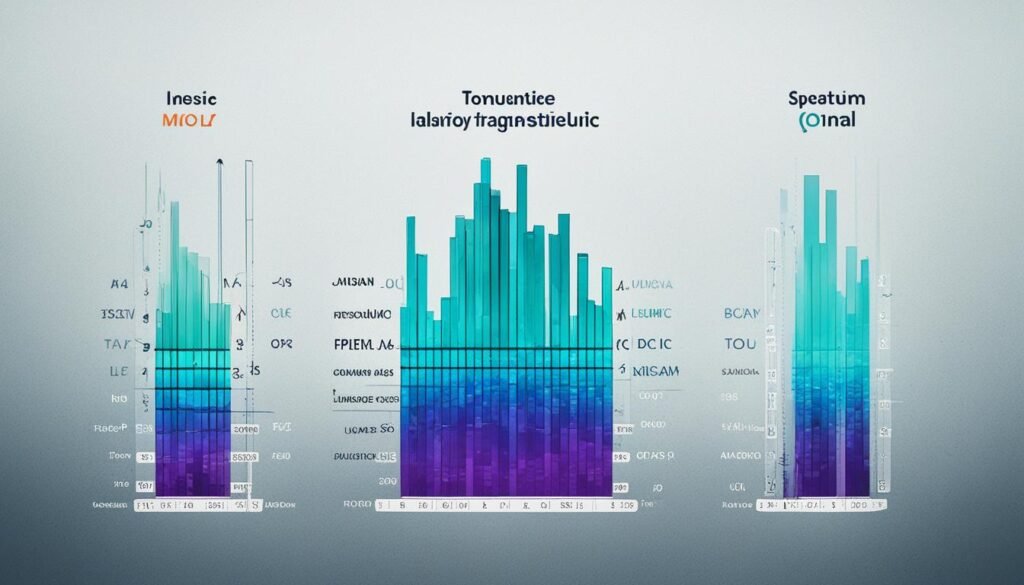Welcome to the ultimate guide to music mastering! In this comprehensive guide, we will delve into the techniques and tips used by mastering engineers to elevate your tracks to professional levels. Whether you’re a seasoned musician or an aspiring artist, mastering is a crucial step in enhancing the sound quality of your music.
Understanding the role of a mastering engineer is essential to grasp the intricacies of this process. A mastering engineer is responsible for fine-tuning your tracks, ensuring they sound their best across different playback systems. They use various tools like compression, EQ, and reference tracks to bring out the full potential of your music.
When it comes to mastering, it’s all about achieving the perfect balance. Compression helps control the dynamic range of your tracks, while EQ allows you to shape the frequencies and carve out a distinct sonic character. By working on elements like stereo imaging and loudness, a mastering engineer can make your music sound polished and professional.
Throughout this guide, we will explore the essential techniques and processes involved in music mastering. From choosing the right plugins to avoiding common pitfalls like clipping, you’ll gain valuable insights to make your tracks stand out.
So whether you’re looking to mix and master your own music or collaborate with a professional mastering engineer, this guide has you covered. Let’s dive in and unlock the secrets of music mastering!
Key Takeaways
- A mastering engineer plays a crucial role in fine-tuning your tracks to professional standards.
- Compression and EQ are essential tools used in music mastering to achieve balance and clarity.
- Choosing the right plugins and understanding their role is key to a successful mastering process.
- Avoiding common pitfalls like clipping and ensuring a balanced tonal balance is crucial.
- Whether you choose to master your own music or work with a professional, the techniques in this guide will help you elevate your tracks.
The Role of a Mastering Engineer
Before diving into the specifics of music mastering, it’s important to understand the crucial role played by a mastering engineer. These experts are responsible for taking a raw audio mix and transforming it into a polished and professionally sounding final product. They utilize their expertise and a range of tools to elevate your tracks and ensure they sound their best on all playback systems.
The Importance of Dynamic Range
One of the key goals of a mastering engineer is to optimize the dynamic range of a track. Dynamic range refers to the difference between the softest and loudest parts of a song. A well-mastered track will have a balanced dynamic range, allowing for greater expressiveness and impact.
“Dynamic range is crucial in music production as it gives your tracks breathing room and enhances the listening experience. By carefully controlling the different elements that make up a song, a mastering engineer can bring out the nuances and emotions, making your music come alive.”
Tools of the Trade
To achieve the desired dynamic range and overall sonic balance, a mastering engineer relies on a variety of tools. Among these are limiters, compressors, and equalizers.
A limiter is a crucial component of the mastering chain. It ensures that peaks in the audio signal do not exceed a certain level, preventing distortion and ensuring a clean and controlled sound.
Compressors, on the other hand, are used to reduce the dynamic range by attenuating the loudest parts of a track. This helps to even out the overall volume and make the softer elements more audible. Additionally, compressors can add character and enhance the tonal balance of a song.
Equalizers enable a mastering engineer to make precise adjustments to the frequency content of a track. By boosting or cutting specific frequencies, they can enhance the clarity and tonal balance, while also addressing any problematic areas that may be muddying the mix.
The Mastering Chain and Music Production
A mastering engineer carefully constructs a mastering chain, which is a series of processing tools applied to a track in a specific order. This chain allows for precise control over the various elements of the sound and helps in achieving the desired sonic outcome.
The mastering chain typically includes components like EQ, compression, and limiting, among others. Each tool serves a specific purpose and contributes to the overall enhancement of the track’s sonic qualities.
“Understanding the mastering chain is essential for any music producer or artist. While it may seem complex, its proper utilization can significantly elevate your music production to professional levels and ensure your tracks shine on all platforms.”
Here’s an example of a typical mastering chain:
| Processing Tool | Purpose |
|---|---|
| Equalizer | Adjust tonal balance and address frequency imbalances |
| Compressor | Control dynamic range and add tonal character |
| Limiter | Prevent clipping and control overall loudness |
By understanding the role of a mastering engineer, the importance of dynamic range, and the tools and techniques they employ, you’ll be equipped with valuable insights into the world of music mastering. This knowledge will empower you to make informed decisions and work more effectively with mastering engineers to achieve the best possible sound for your tracks.
The Essentials of Music Mastering
In the world of music production, mastering is the final step in the process that brings your music to its full potential. It is the art of refining and enhancing the sonic characteristics of a recording to ensure it sounds its best across different playback systems. In this section, we will delve into the essential techniques and processes involved in music mastering, including the use of plugins, avoiding clipping, achieving the desired tonal balance, and optimizing the frequency range.
Plugins: Tailoring the Sound
Plugins are powerful tools that mastering engineers use to shape the audio during the mastering process. They allow precise control over various aspects of the sound, such as dynamics, equalization, stereo image, and more. When selecting plugins, it’s essential to choose ones that align with your desired tonal balance and frequency range. For example, if your mix lacks warmth in the low frequencies, you can utilize an EQ plugin to boost those areas and achieve a more balanced sound.
Avoiding Clipping for a Polished Mix
One common pitfall in music mastering is clipping, which occurs when the audio signal exceeds the maximum level that the digital system can handle. Clipping can result in distortion and compromised audio quality. To avoid this, mastering engineers carefully monitor the levels and utilize techniques such as peak limiting to ensure that the final mix remains within the acceptable range. By managing the dynamic range effectively, you can achieve a polished mix that maintains clarity and fidelity.
Making Your Mix Louder and Polished
Another crucial aspect of music mastering is achieving a perceived loudness that competes with commercial releases. Mastering engineers employ various techniques to make the final mix sound loud and polished, while still maintaining the overall tonal balance. This involves utilizing compression, multiband processing, and other tools to control the dynamic range and achieve consistency in volume levels. Additionally, careful attention is given to the stereo image, ensuring that the mix translates well across different playback systems.
Optimizing the Tonal Balance and Frequency Range
The tonal balance and frequency range of your music play a vital role in how it is perceived by listeners. During the mastering process, it’s essential to ensure that each element of the mix occupies its rightful place within the frequency spectrum. This is achieved through the precise application of EQ and other tonal shaping tools. By analyzing the mix’s frequency content and making adjustments as needed, mastering engineers can optimize the overall balance and make the music sound cohesive and professional.

| Plugin | Description |
|---|---|
| 1. Waves SSL G-Master Buss Compressor | This plugin emulates the classic analog SSL console, renowned for its transparent compression and mastering-grade sound. It provides precise control over the dynamics, enhancing the overall mix. |
| 2. Universal Audio Precision EQ | This versatile EQ plugin offers precise tonal shaping capabilities, allowing you to boost or cut specific frequencies as necessary. It is an excellent tool for achieving the desired tonal balance. |
| 3. FabFilter Pro-L 2 | As a true peak limiter, this plugin ensures that your final master stays within the acceptable levels and prevents clipping. It also offers advanced features for controlling the loudness and maximizing the overall volume. |
| 4. iZotope Ozone | Ozone is a comprehensive mastering suite that includes a wide range of modules for equalization, dynamics, stereo imaging, and more. It provides a complete set of tools to shape your mix and achieve professional results. |
Mastering Techniques and Tips
Ready to take your music mastering to the next level? In this section, we’ll explore advanced techniques and tips that will help you improve the sound quality of your tracks.
Perceived Loudness and LUFS Measurement
When mastering your music, understanding perceived loudness is crucial. It refers to how loud a track sounds to the human ear rather than its actual peak level. It is measured using LUFS (Loudness Units Relative to Full Scale), which provides a more accurate representation of loudness.
By mastering to a specific LUFS target, you can ensure consistent volume levels across different playback systems, enhancing the listener’s experience.
Achieving a Balanced Final Master
The final master is the polished version of your mix that is ready for distribution. Achieving a balanced final master involves careful adjustment of individual track levels and frequency balance.
Use techniques like EQ to address any tonal imbalances and ensure each element of your mix is clear and well-defined. Additionally, consider the stereo image to ensure a wide and immersive sound.
Mono Compatibility and Headroom
Maintaining mono compatibility is essential to ensure your music sounds good on all systems, especially in clubs or venues with mono sound setups. Checking your mix in mono can help identify any phase cancellation issues or elements that may disappear when summed to mono.
Managing headroom is another crucial aspect of mastering. Leaving enough headroom allows for better dynamics and prevents distortion. Aim to have around 3dB of headroom to give your mastering tools enough room to work their magic.
Sample Rate and True Peak Levels
When finalizing your master, it’s important to consider the sample rate. Stick to the same sample rate as your project to avoid any unnecessary conversions and preserve the integrity of your audio.
Pay attention to true peak levels, which represent the highest absolute level in your audio waveform. Keep these levels in check to prevent any potential clipping or distortion during playback.
Level Matching for Comparison
Level matching allows for accurate comparison between different versions of your mix. It ensures that volume differences between tracks do not influence your judgment when making critical decisions during the mastering process.
By matching the perceived loudness of your tracks, you can focus on the tonal balance, dynamics, and overall sound quality without being swayed by volume differences.
Now that you’re armed with these mastering techniques and tips, you can refine your skills and make your music shine. Experiment, trust your ears, and enjoy the rewarding process of transforming your tracks into professional-level masters.

Your Own Guide To Music Mastering
If you’re ready to take the final step in the music production process and bring your tracks to the next level, mastering your own music is an empowering option. With the right techniques and tools, you can achieve professional results and make your songs sound better than ever. This section will serve as your ultimate guide to mastering a song, providing valuable insights and practical tips.
One of the key aspects to focus on when mastering your own music is achieving the perfect tonal balance. This involves fine-tuning the frequencies of your tracks to ensure they complement each other, resulting in a harmonious and cohesive sound. By carefully adjusting the EQ and applying compression, you can emphasize the strengths of your mix and create a polished final master.
To properly master your own songs, it’s important to understand the concept of loudness. Aim for a final master that is competitive in volume with commercial releases, without sacrificing dynamics or causing distortion. Utilizing techniques like proper gain staging and implementing the 3dB rule can help you achieve the optimal loudness level while maintaining the integrity of your music.
As you venture into mastering your own music, remember to take advantage of the wide array of professional mastering plugins available. These powerful tools can greatly enhance your workflow and provide precise control over the tonal balance and dynamics of your tracks. Experiment with different plugins and find the ones that work best for your music.
While mastering your own music can be a rewarding process, it’s important to recognize the value of professional mastering services. If you’re looking for that extra touch of expertise and a truly refined sound, collaborating with a professional mastering engineer can take your music to new heights. They possess the experience and specialized tools needed to bring out the best in your tracks and ensure they are ready for release.
Industry-Standard Practices
- Invest in a quality Digital Audio Workstation (DAW) that caters to your specific mastering needs.
- Apply proper gain staging throughout the mastering chain to maintain clarity and avoid clipping.
- Use a reference track to guide your tonal balance and ensure your master aligns with industry standards.
- Consider utilizing plugin chains to streamline your workflow and achieve consistent results.
- Take regular breaks while mastering to rest your ears and maintain objectivity.
- Keep your master in mono to identify any phase issues and ensure compatibility across listening systems.
Inspiring Quote
“Mastering your own music can be a journey of self-discovery. It allows you to fully express your artistic vision and create a sonic experience that resonates with your audience.”
Mastering Your Sound
“Mastering your own music is the final step in the creative process, where you have complete control over how your tracks sound. By mastering your own music, you have the power to make it sound better, and unleash its full potential. Don’t be afraid to experiment and push the boundaries with your mastering techniques. The more you practice and refine your skills, the closer you’ll get to achieving that professional sound.”
Essential Tools for Mastering Your Own Music
| Tool | Description |
|---|---|
| Equalizer (EQ) | Allows you to shape the frequency response of your tracks, enhancing tonal balance. |
| Compressor | Controls the dynamic range of your music, ensuring consistent levels and adding character. |
| Stereo Imaging Plugin | Expands the stereo field of your mix, adding width and depth to your sound. |
| Limiter | Prevents your tracks from clipping and allows you to increase the overall loudness. |
| Reference Track | A professionally mastered track that serves as a benchmark for tonal balance and loudness. |
Embrace the challenge of mastering your own music and unlock its true potential. With the right techniques and careful attention to detail, you can achieve professional-grade results and take your music to new heights. Enjoy the freedom and creativity that comes with mastering your own tracks and witness the transformation of your musical vision into a polished, sonically captivating masterpiece.

Conclusion
Mastering is an essential step in the music production process that can greatly enhance the sound quality of your tracks. Whether you choose to work with a professional mastering engineer or take on the task yourself, the techniques and tips shared in this guide will help you achieve exceptional results.
By mastering your music, you ensure that it is ready for release and sounds its best across different playback systems. The expertise of a professional mastering engineer can provide an extra layer of polish and refinement to your tracks, making them stand out in a crowded market. Their knowledge and experience in enhancing the sound and fine-tuning the music for release can take your music to the next level.
If you decide to master your own music, the insights and techniques discussed in this guide will empower you to create professional-sounding tracks. From understanding tonal balance to utilizing the right tools, mastering your own music becomes an achievable and rewarding endeavor.
Remember that professional mastering services are always available if you prefer to entrust a skilled mastering engineer with the task. They have the expertise and specialized equipment to optimize your tracks and ensure they sound their best for release.
Also Read : Beginner’s Guide: How to Make Music Easily
FAQs
Q: What is music mastering?
A: Music mastering is the final step in the post-production process where the final mix of a song is prepared for distribution. It involves ensuring the audio is balanced, polished, and ready for different playback systems.
Q: Why is mastering important for music production?
A: Mastering is crucial as it enhances the overall sound quality of a track, ensures consistency across an album, and optimizes the audio for different listening environments.
Q: How can mastering elevate my tracks?
A: Mastering can help enhance the clarity, depth, and dynamics of your music, making it sound more professional and competitive in the industry.
Q: What tools are commonly used in music mastering?
A: Audio mastering engineers use tools such as EQ (equalization), compression, stereo width adjustments, and peak meters to enhance and balance the final mix of a song.
Q: Can mastering improve the loudness of a song?
A: Yes, mastering can help optimize the loudness of a song without compromising its audio quality, making it sound louder and more impactful.
Q: How important is it to work with a professional mastering engineer?
A: Working with a professional mastering engineer is essential as they have the expertise, tools, and experience to ensure your music reaches its full potential and meets industry standards.
Q: What are some mastering tips for achieving a great final mix?
A: Some mastering tips include checking your master on different playback systems, paying attention to stereo width, using proper signal chain, and focusing on enhancing the overall clarity and dynamics of the music.




